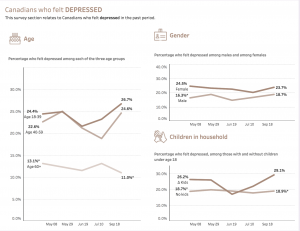Vitamin D is often seen as the “cure-all” for several reasons, and has since caught the attention of several researchers in light of the COVID-19 pandemic. However, according to several recent studies, researchers claim that there is not enough evidence to recommend the use of vitamin D supplements to prevent or treat COVID-19.
Why did researchers think that Vitamin D could help?
Vitamin D is obtained from sunlight or diet, and is naturally produced in the human body. Deficiencies in vitamin D are common, affecting one third of Canadians, and can result in many negative symptoms such as fatigue, muscle pain, and even depression. Vitamin D is known to play an important role in the immune system as it helps strengthen immunity in your body, protecting you from infections.

The sun’s energy turns a chemical in your skin into vitamin D3, which is carried to your liver & kidneys to transform it to the vitamin D used in your immune system to defend you from infections. Source: Health Harvard
In a study conducted in Spain, researchers have found that 82% of hospitalized COVID-19 patients had a deficiency in vitamin D, however, many specialists questioned whether this is due to a direct correlation between vitamin D deficiency and COVID-19 severity, or if other factors come to play.
What we know now:
The study conducted by researchers in a hospital in Spain in March of 2020, found that although there was a higher prevalence of vitamin D deficiency in patients hospitalized with COVID-19, there was no relationship between vitamin D concentrations or deficiency and the severity of the disease, such as the need for ICU admission, mechanical ventilation, or even death.
Furthermore, another study claims that the factors associated with COVID‐19 deaths, such as old age, ethnicity, obesity, diabetes, and hypertension (high blood pressure), overlap with the risks associated with vitamin D deficiency. This study discusses how healthier people are likely to spend more time outdoors (exposing themselves to sunlight, gaining more vitamin D) and eat healthier, compared to less healthy individuals, explaining this overlap. This makes it difficult for researchers to know whether the severity of the disease is directly impacted by vitamin D deficiency, or from other factors that overlap.
Should you start/stop taking Vitamin D supplements?
Taking vitamin D supplements is generally viewed as safe by health authorities. However, specialists advice to not take doses above the doses recommended to you by your doctor, as higher doses can lead to kidney stones.
Watch this short video to listen to what different specialists have to say about the use of vitamin D supplements in response to COVID-19:
Despite the lack of evidence to support that vitamin D could help treat/prevent COVID-19, vitamin D deficiencies should still be treated. Consider talking to your doctor if you have a vitamin D deficiency about whether vitamin D taking supplements might be right for you.
Looking Ahead
Until there is conclusive evidence on whether vitamin D has an effect on COVID-19, as Tim Caulfield, Canada Research Chair in Health Law, said in the video above, “we have to be open-minded… and we’ve got to try stuff”, in regards to future research regarding COVID-19.
– Sarah Ghoul




